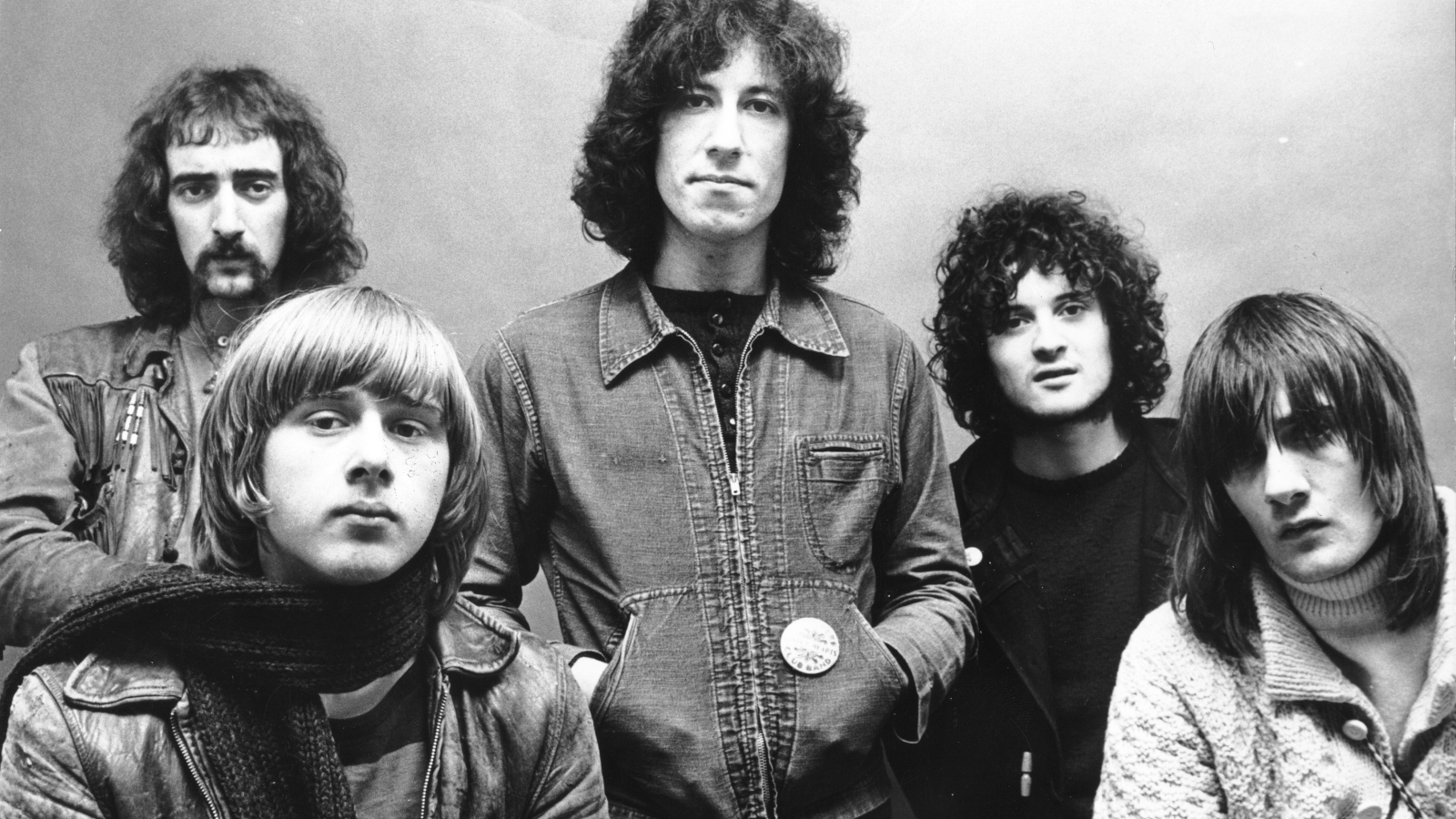Here’s Why Fleetwood Mac's 1969 Album 'Then Play On' is One of the Greatest Blues-Rock Records Ever Made
The group’s third studio LP is hard evidence of Fleetwood Mac’s growth from an excellent blues band to a blues-based act that defied description

I don’t want to rock the boat, but to me Fleetwood Mac never meant Stevie Nicks, Lindsey Buckingham or the tedious media fascinations with the band members’ relationship conflicts. To me, Fleetwood Mac meant one thing: Then Play On – one of the greatest blues-rock records ever made.
Then Play On was the group’s third album, released on the Reprise label in 1969. This gatefold record is hard evidence of Fleetwood Mac’s growth from an excellent blues band to a blues-based act that defied description.
The group at this point featured Peter Green and Danny Kirwan, each on guitar and vocals, Jeremy Spencer (whose only contribution here is piano on “Oh Well”), and the world-class rhythm section of bassist John McVie and drummer Mick Fleetwood.
“Coming Your Way” opens the record with McVie and Fleetwood’s trademark jungle beat.
The song quickly reveals how the group had evolved since its 1968 debut, where it sounded more like a traditional blues band. We can hear its vocabulary expand into a language all its own. It’s still blues, but with a new dialect. The song ends with a dramatic riff-rock passage that sounds like a precursor to the Beatles’ “I Want You (She’s So Heavy).”
It’s a stunning entrance to this great album.
“Oh Well,” easily the best-known track here, actually entered the Billboard Top 100 chart and is memorable both for its insistent riff and blunt vocal refrain, “I can’t sing, I ain’t pretty and my legs are thin.”
Midway through, it abruptly shifts from a primal rocking blues vamp to a movement with echoes of an Ennio Morricone soundtrack that you might hear as a pair of gunslingers stare one another down in a duel.
“Rattlesnake Shake” is another masterpiece. The guitar tones epitomize evil, in the best possible way. (Isn’t that what we all want?) Again, the rhythm section grinds away.
The Peter Green vocal is spoken as much as it’s sung, and it’s as laser-direct as the guitars. Some vocalists have chops, but it feels like they’re playing a role, and I don’t believe in them. Green’s vocal performances, on the other hand, always feel like a confession more than a performance.
Being drawn to instrumentals, I was most influenced by “Underway.” The song is basically a vamp using the A major 6 chord on the 2nd fret: Just lay your first finger down and – presto! – you have ‘Underway”!
In high school, I found a live extended bootleg version of this song that changed my life. It’s a reverb-laden sonic exploration, and a performance for the ages that ends with Green playing beautiful, stabbing melodies, long after the entire band has dropped out.
That said, the album version is a nice rendition.
I’m impressed by how Then Play On prioritizes what I assume Fleetwood Mac wanted to show of themselves: their ability to create both taut, vocal-led tracks and stunning instrumental workouts.
In between beautiful orchestrations and heart-wrenching vocals, performance pieces like “Searching for Madge” and “Fighting for Madge” shoulder their way into our listening experience. These are exciting, dripping-raw one-key jams, but their presence here feels seamless with the rest of the tracks. The group’s commitment makes me believe in them.
Side two ends with Green’s “Before the Beginning,” and his vocals and crying guitar performance are the perfect ending to an almost-perfect record.
Sure, Fleetwood Mac and Rumours are great albums that served up anthems for an era, but I can usually hear select cuts from those records while waiting at my bank machine, or at the grocery store.
On the other hand, when I want to hear brilliant blues rock that never compromises and demands to be heard, I put Then Play On on my turntable and play it loud.
Get The Pick Newsletter
All the latest guitar news, interviews, lessons, reviews, deals and more, direct to your inbox!
Jim Campilongo has 14 critically acclaimed instrumental records available on vinyl, CD and digital download here.
“We’re Liverpool boys, and they say Liverpool is the capital of Ireland.” Paul McCartney explains how the Beatles introduced harmonized guitar leads to rock and roll with one remarkable song
"When they left town, I went to the airport and got to meet Ritchie, and he thanked me for covering for him." Christopher Cross recalls filling in for a sick Ritchie Blackmore on Deep Purple's first-ever show in the U.S.













